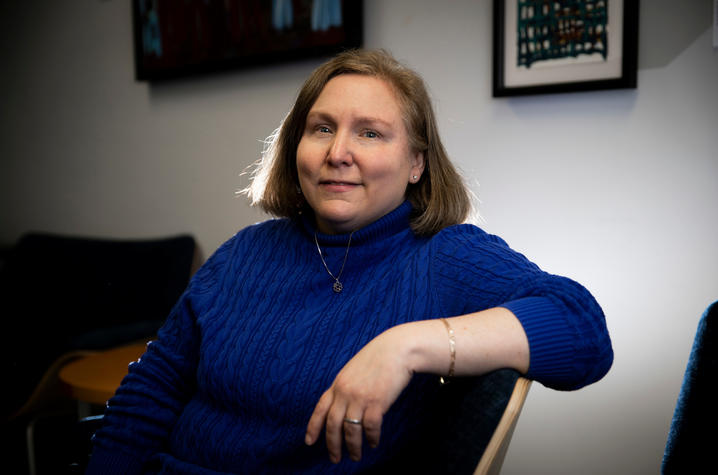UK Social Work Receives Engagement Award to Bring Together Suicide Survivors, Research

A new project, spearheaded by a team of researchers in the College of Social Work (CoSW) at the University of Kentucky, aims to empower those with lived experience of suicide.
The project — which will inform suicide-related advocacy, education, research and treatment — is being funded by a nearly $100,000 grant through the Eugene Washington PCORI Engagement Awards Program, an initiative of the Patient-Centered Outcomes Research Institute (PCORI).
“This is an incredible opportunity to create an active and meaningful interchange of ideas between those with lived experience of suicide and others involved in suicide-related work,” Julie Cerel, director of the CoSW’s Suicide Prevention and Exposure Lab (SPEL), explained. “Through this project, we hope to create a lasting partnership and a lived-experience framework congruent with preventing suicide and meeting the needs of those who have survived an attempt.”
Using her expertise in suicidology, Cerel will lead the project. Dese’Rae Stage and Jess Stohlman-Rainey, suicide attempt survivors and advocates, will serve as co-leads. Additionally, the team is partnering with the American Association of Suicidology — the nation’s longest running membership organization for those involved with suicide prevention and postvention.
“The Suicide Prevention and Exposure Lab is uniquely situated to conduct this ground-breaking work. This project is consistent with SPEL’s vision, which is centered on participatory engagement in all facets of work related to suicide,” Jay Miller, dean of the CoSW, said. “We certainly appreciate PCORI’s support for what is sure to be an exponentially impactful endeavor.”
Projects approved for funding by the PCORI Engagement Award Program undergo a highly competitive review process, in which applications are assessed for their ability to meet PCORI’s engagement goals and objectives, as well as program criteria.
PCORI is an independent, nonprofit organization authorized by Congress in 2010 to fund comparative effectiveness research — providing patients, their caregivers and clinicians with the evidence needed to make informed health care decisions.
For more information about PCORI’s funding to support engagement efforts, you can visit the institute's website.
More from this series Research Support
Credits
Lindsey Piercy (Public Relations & Strategic Communications)


